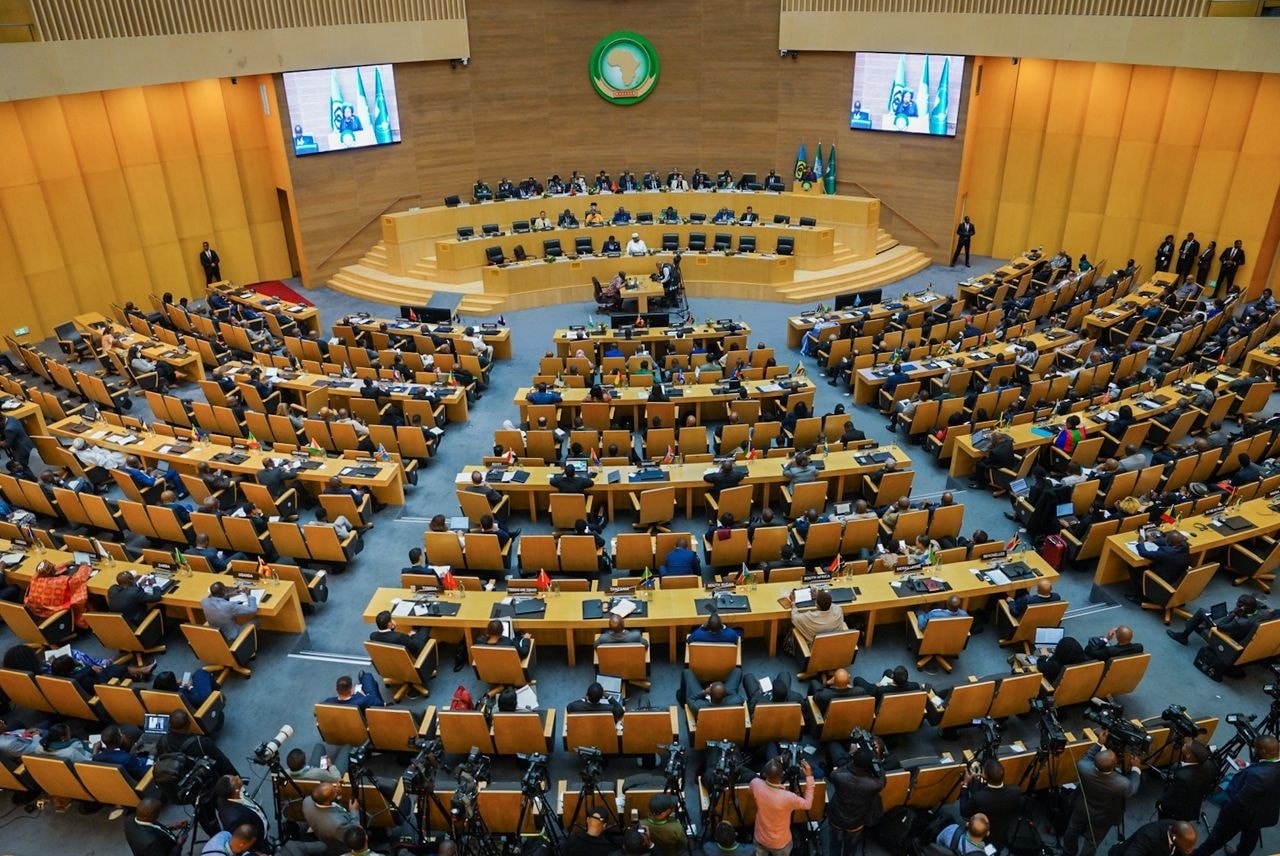Beyond Colonial Legacies – Africa & CARICOM Forge New Path in Reparatory Justice - ENA English
Beyond Colonial Legacies – Africa & CARICOM Forge New Path in Reparatory Justice

By Samiya Mohammed
Addis Ababa, September 28, 2025 (ENA) -- The recent Second Africa-CARICOM Summit in Addis Ababa marked a historic turning point in transcontinental relations, potentially reshaping how Global South nations collaborate on issues of justice, development, and collective sovereignty.
Convened under the powerful theme Transcontinental Partnership in Pursuit of Reparatory Justice for Africans and People of African Descent through Reparations, the summit represented more than a diplomatic ceremony; it signified a fundamental reimagining of Africa-Caribbean relations beyond colonial constructs toward a future built on mutual interests and shared historical experiences.
The gathering built upon the foundation laid by the first summit held in 2021, but with heightened urgency and more concrete mechanisms for collaboration. As articulated by Angolan President João Manuel Gonçalves Lourenço, who currently chairs the African Union, the summit aimed to "transform past injustices into solidarity, cooperation, and justice". This sentiment echoed throughout the proceedings, reflecting both regions' determination to leverage their collective strength in addressing the enduring legacies of slavery, colonialism, and ongoing structural inequalities in the global system.
The Africa-CARICOM relationship is steeped in history, connected by the forced migration of millions of Africans during the transatlantic slave trade that created the Caribbean's demographic landscape. Despite this connection, post-colonial relationships between the regions have often been mediated through former colonial powers and limited by geographical distance.
The institutionalization of Africa-CARICOM summits represents a conscious effort to overcome these constraints and establish direct South-South partnerships based on shared aspirations rather than colonial inheritance.
The choice of Addis Ababa as host city carries symbolic weight, positioning the African Union headquarters as the center of this renewed partnership. Ethiopia's Prime Minister Abiy Ahmed Ali emphasized the deliberateness of this partnership, noting that "Africa and the Caribbean bring complementary strengths, and together these are multiplied". His reference to Ethiopia's philosophy of "Medemer," meaning "coming together," aptly captured the summit's spirit, a belief in progress through connection, culture, innovation, knowledge, and collective effort rather than through isolation or dependency.
The summit's focus on reparatory justice represented a maturation of both regions' longstanding but previously parallel efforts toward addressing historical wrongs. The CARICOM Reparations Commission, established in 2013, has pioneered a comprehensive approach through its Ten-Point Plan for Reparatory Justice, which has inspired similar movements globally, including the National African American Reparations Commission in the United States. Similarly, the African Union's designation of 2025's flagship theme as "Justice for Africans and People of African Descent Through Reparations" signalled the continent's institutional commitment to this agenda.
Dr. Carla Barnett, Secretary-General of CARICOM, powerfully framed the summit as a "homecoming for the Caribbean, reconnecting people separated by ocean, colonialism, and economic systems, but united through shared heritage".
This emotional resonance underpinned the political urgency of the reparations agenda, transforming historical trauma into a catalyst for contemporary solidarity.
Prime Minister of St. Kitts and Nevis, Terrance Drew, incoming President of CARICOM, articulated the moral imperative behind the reparations movement: "Repentance alone is no longer sufficient; demands for reparations are legitimate in addressing structural inequalities". His statement scored the summit's rejection of symbolic gestures in favor of substantive restitution that addresses the multidimensional impacts of colonialism and slavery.
Beyond the moral and historical dimensions, the summit demonstrated practical commitment to building institutional architecture that sustains cooperation beyond symbolic gatherings. The adoption of a Joint Communiqué articulating shared development priorities and global policy positions created a roadmap for collaboration. The establishment of an African Caribbean Joint Mechanism on Reparative Justice, based on resolutions from the Global African Diaspora Summit held in South Africa in 2012, provided an institutional vehicle for maintaining momentum.
The presence of leaders from multilateral financial institutions, including the World Bank, International Monetary Fund, and African and Caribbean Development Banks, signalled recognition that financial architecture reform must be part of any meaningful reparations discussion. Mr. Parfait Onanga-Anyanga, Special Representative of the UN Secretary-General to the African Union, highlighted the compounded injustices facing both regions: "the impact of colonialism and the trans-Atlantic slave trade, and the fact that we were under colonial domination when today's multilateral system was created". This analysis reframed the reparations debate beyond compensation for historical wrongs to include the transformation of global systems that perpetuate inequality.
The health sector collaboration exemplified through the Health Development Partnership for Africa and the Caribbean demonstrated how functional cooperation could yield immediate benefits for both regions. Similarly, trade initiatives like the Afrexim Bank office in the Caribbean and the Afro-Caribbean Trade and Investment Forum created tangible economic pathways that reduce dependency on former colonial powers
The Second Africa-CARICOM Summit represents a paradigm shift in South-South cooperation, moving beyond traditional economic development frameworks to embrace a comprehensive approach that addresses historical justice, cultural reconnection, and global structural reform. By centering reparations within their partnership, both regions have positioned moral justice as the foundation for future collaboration rather than treating it as a separate issue.
The summit's emphasis on unity of purpose between Africa and the Caribbean creates unprecedented potential for advancing shared interests in an increasingly multipolar world. As Prime Minister Abiy Ahmed noted, despite adversity, "both regions now choose to face challenges together, defining their own solutions and future". This assertion of agency and self-determination represents the most significant outcome of the gathering, the declaration that two regions with deeply intertwined histories are now writing their next chapter together rather than through intermediaries.
As the implementation phase begins, the world will watch whether this ambitious partnership can transform historical grievances into a future of shared prosperity and dignity. The journey from Addis Ababa will undoubtedly face challenges, but the summit has undoubtedly created a foundation for transformation that could redefine transcontinental relations for generations to come.